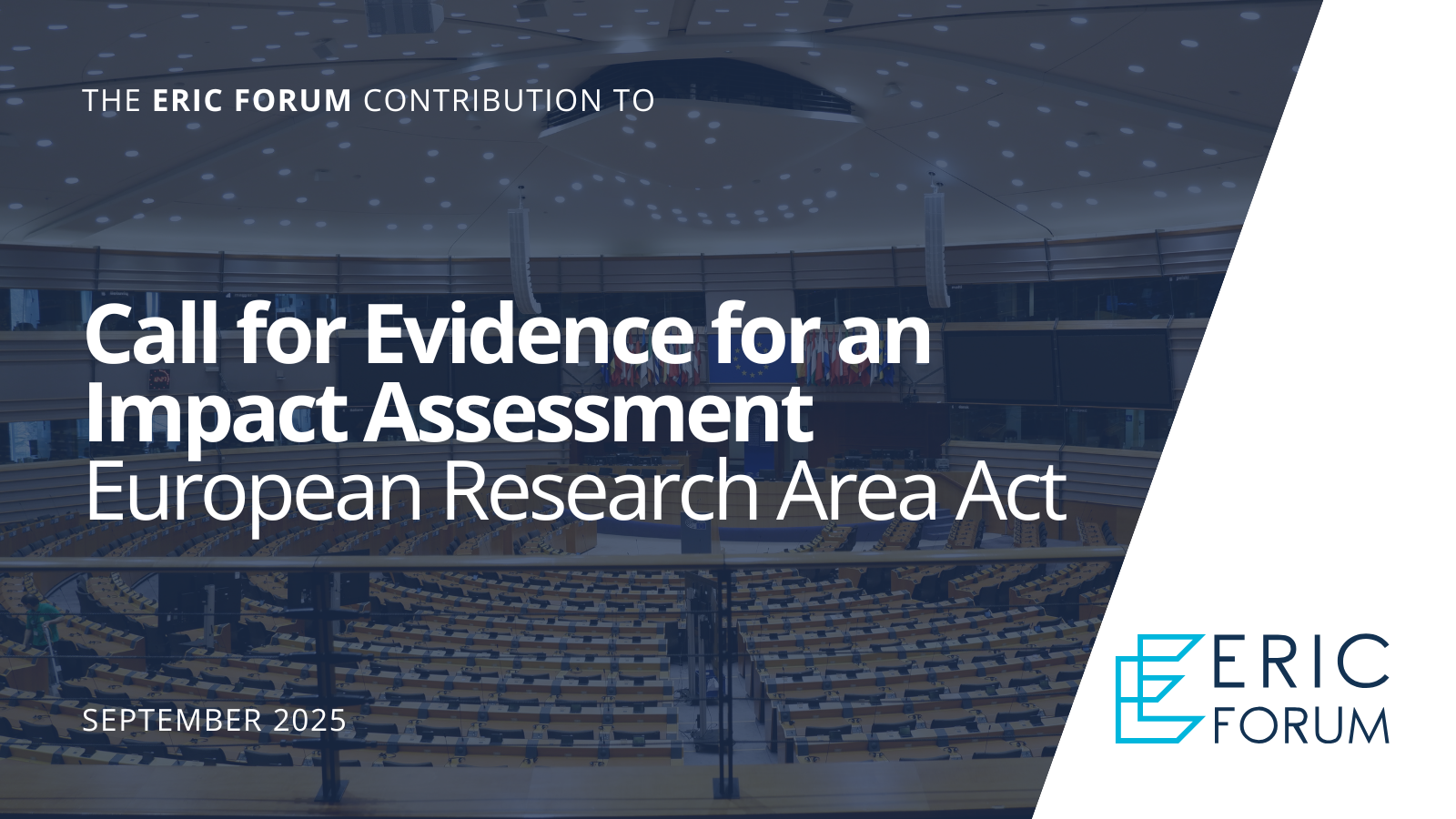
The ERIC Forum has participated in the European Commission’s ‘Call for Evidence’ for the European Research Area Act. The final contribution is now online, along with the other 178 received from various stakeholders. It focuses on the careers of researchers and research support staff at ERICs, describing potential future implementations that could increase the impact of the ERA from the ERIC Forum perspective.
One of the goals of the European Commission is to strengthen the Union’s competitiveness on the global stage, attract investment and top-level talent, and make Europe the world’s most attractive destination for researchers and innovators. Bringing European Countries’ spending on R&D to 3% of GDP would be a successful milestone.
To pursue this objective, “Commissioner Zaharieva for Startups, Research and Innovation was tasked with tabling an ERA Act addressing the remaining challenges for the full implementation of the ERA.” Among the initiatives adopted to prepare the Act, the Commission also launched a ‘Call for Evidence’ aimed at relevant stakeholders. As stated in the introductory text, the Call aims “to collect general evidence on the problems facing the development and full achievement of the European Research Area, along with stakeholders’ views on feasible solutions that could be supported by legislation at EU level.” This approach was chosen because non-legislative measures have been beneficial but not sufficient to drive substantial and lasting changes across the ERA.
The Call for Evidence is now closed, with 178 submissions collected from different nations and categories. According to the analysis made available on the Commission’s website, research institutions and non-governmental organisations were the most active in responding to the Call. When it comes to countries, Belgium, Germany, and the Netherlands occupy the top three positions, with approximately 20%, 13%, and 11% of the proposals submitted, respectively. You can read all the feedback received by following this link.
Regarding the careers of researchers and research support staff at ERICs, here are the proposals the ERIC Forum advanced:
- A standardisation of employment rules and contractual regimes across the ERA.
- Adoption of a Europe-wide harmonised framework of job titles and job descriptions.
- Measures to promote greater uniformity in the level of social security protection for employees moving between countries, supporting the concept that employees who work in research and innovation are citizens of Europe and not of single member states.
Three main arguments were advanced in support of the proposals. First, establishing European unified standards for working hours, holidays, benefits, pension schemes, and other aspects will reduce the extent to which professionals base their job choices on material conditions rather than research opportunities. This will consequently reduce brain drain between countries. Second, the wide variety of employment rules and contractual regimes across Member States does not favour either mobility or generally improved employment conditions. Lastly, recognition of qualifications remains inconsistent across Member States.
If you want to read the complete document, you can download it here.